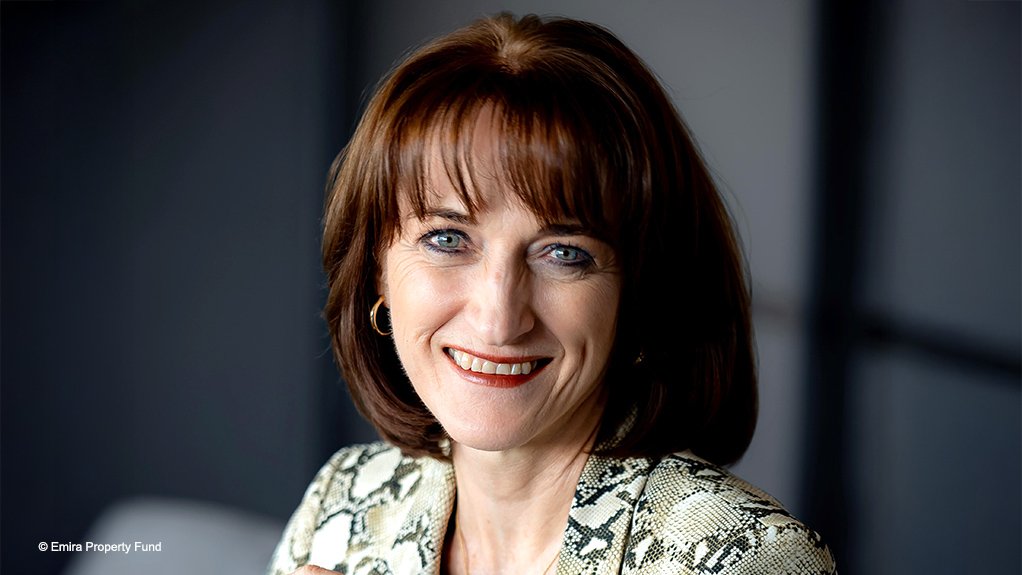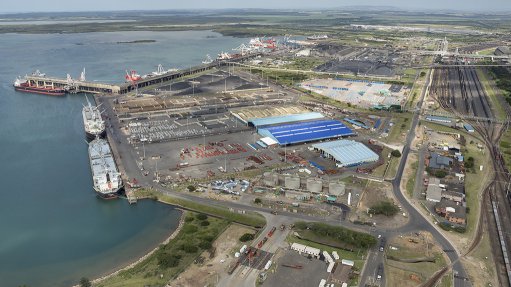South African Reit has put the bee into its business
With the UN having declared May 20 as World Bee Day, South African real estate investment trust (Reit) Emira Property Fund (Emira) has highlighted its programme of bee conservation. The Reit currently hosts 14 beehives at five of its properties, the result of a programme that was started in 2020 and once embraced eight properties – the reduction in number to five was the result of the sale of three of these properties.
“The beehive project was chosen to highlight the decline of global bee populations, because bees and other pollinators are under serious threat, yet they contribute so much to society, as well as to the biodiversity of our properties. Our hives provide a safe place for honeybees to live and breed,” highlighted Emira COO Ulana van Biljon. “Our bee conservation project is a holistic approach to reducing the impact of environmental degradation, which goes beyond planting trees.”
According to the UN, more than 75% of the world’s food crops, including fruits, nuts and seeds, as well as vegetables, and 35% of the world’s agricultural land, depend upon animal pollinators. And the most important of these pollinators are bees, of which there are 20 000 species, globally.
Emira’s beehives are situated in accordance with the welfare needs of both the bees and humans. The hives are in secured, controlled environments, clearly signposted and away from the areas most frequented by people. The beekeeping activities are done at night. These precautions are implemented even though, as van Biljon pointed out, people actually live in harmony with bees, every day, with natural bee swarms in every South African city.
The first beehives were installed at Knightsbridge Office Park in Bryanston, and Hyde Park Lane in Sandton, both in Johannesburg. Further hives were installed at Wonderpark, in Pretoria North, Albury Park, which as also in Sandton, and One Highveld, in Highveld, in Pretoria.
These beehives did produce honey, although natural processes meant that the hives did not produce honey all the time or at the same time. In March, for example, four of the sites produced a total 106 kg of honey. This was divided into 19 kg from Knightsbridge, 16 kg from Hyde Park Lane, 18 kg from Albury Park and 53 kg from Wonderpark. Natural processes in action meant that no honey could be collected at One Highveld.
The honey that was collected was shared between Emira’s staff and tenants, to promote the awareness of biodiversity. As the bees collect nectar from plants within a radius of about 3 km from their hives, and as the different locations are surrounded by different types of plants and flowers, each site produces honey that differs in taste from the other sites.
Emira has also started supporting the capture and removal of bee swarms that occupy unsuitable sites, near its properties. These swarms are rehoused at suitable, safe, sites.
The bee programme is part of the Reit’s commitment to best environmental, social and governance practices. These include its No Net Future Loss programme, to conserve and promote biodiversity across its portfolio.
“The country’s natural ecosystems are threatened by land use change, degradation and invasive alien species,” pointed out Van Biljon. “Climate change worsens these threats, but healthy ecosystems offer natural solutions that increase resilience. They protect communities from extreme weather events and enhance natural resources, livelihoods, food security and habitats for animals and plants.”
Article Enquiry
Email Article
Save Article
Feedback
To advertise email advertising@creamermedia.co.za or click here
Press Office
Announcements
What's On
Subscribe to improve your user experience...
Option 1 (equivalent of R125 a month):
Receive a weekly copy of Creamer Media's Engineering News & Mining Weekly magazine
(print copy for those in South Africa and e-magazine for those outside of South Africa)
Receive daily email newsletters
Access to full search results
Access archive of magazine back copies
Access to Projects in Progress
Access to ONE Research Report of your choice in PDF format
Option 2 (equivalent of R375 a month):
All benefits from Option 1
PLUS
Access to Creamer Media's Research Channel Africa for ALL Research Reports, in PDF format, on various industrial and mining sectors
including Electricity; Water; Energy Transition; Hydrogen; Roads, Rail and Ports; Coal; Gold; Platinum; Battery Metals; etc.
Already a subscriber?
Forgotten your password?
Receive weekly copy of Creamer Media's Engineering News & Mining Weekly magazine (print copy for those in South Africa and e-magazine for those outside of South Africa)
➕
Recieve daily email newsletters
➕
Access to full search results
➕
Access archive of magazine back copies
➕
Access to Projects in Progress
➕
Access to ONE Research Report of your choice in PDF format
RESEARCH CHANNEL AFRICA
R4500 (equivalent of R375 a month)
SUBSCRIBEAll benefits from Option 1
➕
Access to Creamer Media's Research Channel Africa for ALL Research Reports on various industrial and mining sectors, in PDF format, including on:
Electricity
➕
Water
➕
Energy Transition
➕
Hydrogen
➕
Roads, Rail and Ports
➕
Coal
➕
Gold
➕
Platinum
➕
Battery Metals
➕
etc.
Receive all benefits from Option 1 or Option 2 delivered to numerous people at your company
➕
Multiple User names and Passwords for simultaneous log-ins
➕
Intranet integration access to all in your organisation




















